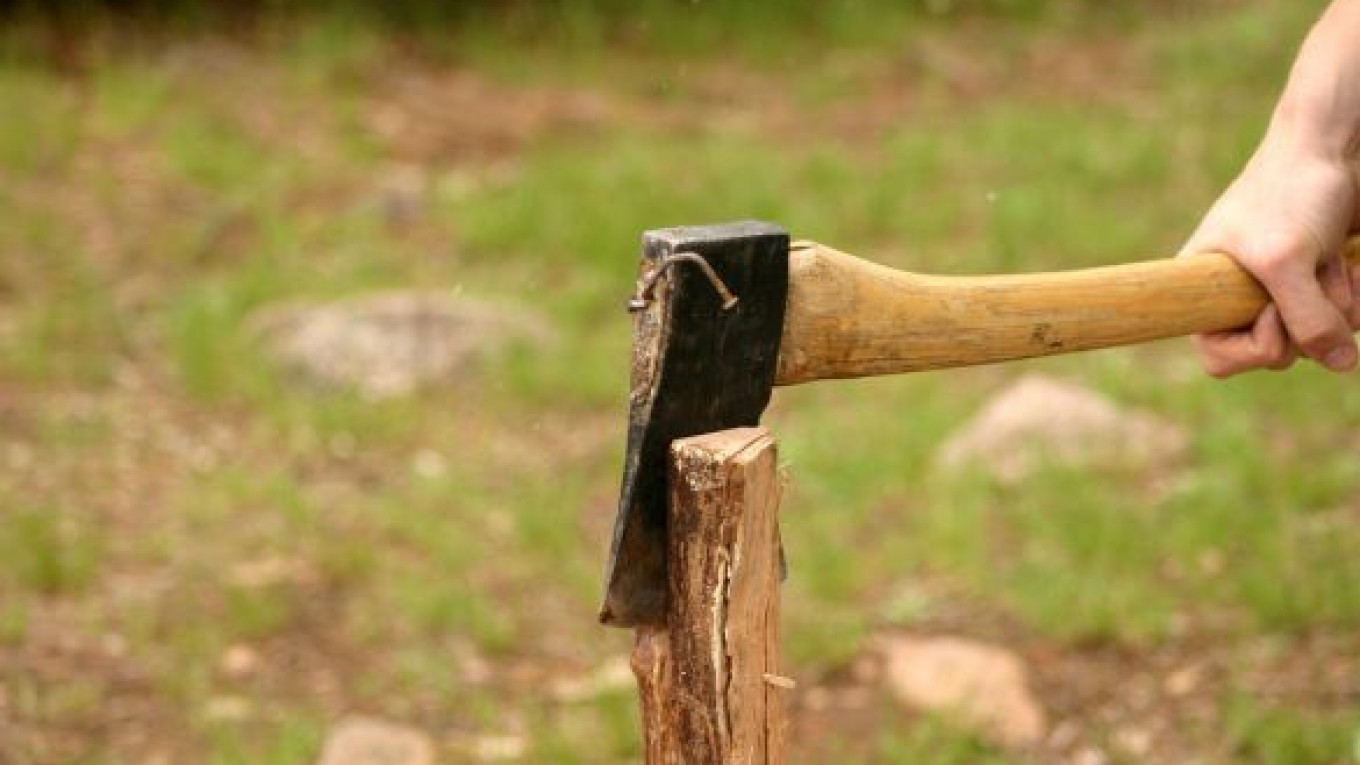Ясен пень: of course, obviously
Every once in a while in our high-tech, multicultural and international life, Russian kicks out words and phrases that harken back to a pre-industrial, pre-urban and prehistoric existence. Most native speakers don't pay much attention to them. But sometimes we non-native speakers "hear" the original meaning of the words, not the figurative meaning acquired over the centuries. Suddenly you're in a forest with an axe, not in the metro holding your smartphone.
Take пень (tree stump). People living in high rises don't discuss them much. But in Russian, пень is more than wood. It can describe someone who is deaf: Напротив живёт ветеран, глухой как пень (A veteran lives across from me — he's deaf as a post.) Or someone who is as dumb as a plank: Никто за тебя думать не будет, пень берёзовый! (No one is going to think for you, you blockhead!)
Пень is used figuratively to describe someone struck dumb: Все бегают, как сумасшедшие, а он стоит пнём. (Everyone is running around like crazy while he just stands there like he was rooted to the ground.) Or to describe someone who is unsophisticated — a backwoods hick: он в лесу живёт и пню молится (he lives in the woods and prays to tree stumps).
And then it's part of the jocular phrase ясен пень (literally, "as obvious as a tree stump"). Ну ясен пень, что Зенит проиграет (Well, of course Zenit is going to lose.)
Another woody word is колода (log). Колода is a strange word. It has many different meanings, only some of which are related to logs and chunks of wood. Колода can be a log lying in the woods, a chopping block or anything dug out of a log — like a water trough, beehive, boat or casket. Много раз я видел, как он работает, как взлетает топор над колодой. (I saw him work, his axe flying over the chopping block, many times.) Представьте себе: гроб — дубовая колода, как в древности. (Imagine the casket — a hollowed out oak log, like in ancient times.)
And then there are more obscure and obsolete meanings of колода: It is used to talk about an old form, a measure and the number 100 million.
But strangest of all for me is the most common contemporary meaning of колода — a deck of cards. I'm not sure how the chopping block morphed into printed cards, but it did: Надо тасовать карты и разделить колоду пополам (You need to shuffle the cards and cut the deck in half.) This deck of cards is often used figuratively as a kind of pack, set or collection: В свою очередь наши противники в дебатах выкладывали целую колоду аргументов. (In turn our debating opponents laid out a whole set of arguments.)
When you put пень and колода together, you get the expression через пень колоду (to do something in a slipshod or haphazard manner). Etymologists argue about the origins. In one version, валить через пень колоду meant something like "to push a log over a stump" — that is, do something in a clumsy way. Today, Russians don't hear the folksy backwoods origins of the phrase. It is just combined with almost any verb to mean a bad job: Ремонт сделали через пень колоду (The repair job was shoddy.) It can also mean irregular in terms of time: Трамваи ходили через пень колоду (The trams ran off and on.)
But my ear still hears the wood chips flying, ясен пень!
Michele A. Berdy, a Moscow-based translator and interpreter, is author of "The Russian Word's Worth" (Glas), a collection of her columns.
A Message from The Moscow Times:
Dear readers,
We are facing unprecedented challenges. Russia's Prosecutor General's Office has designated The Moscow Times as an "undesirable" organization, criminalizing our work and putting our staff at risk of prosecution. This follows our earlier unjust labeling as a "foreign agent."
These actions are direct attempts to silence independent journalism in Russia. The authorities claim our work "discredits the decisions of the Russian leadership." We see things differently: we strive to provide accurate, unbiased reporting on Russia.
We, the journalists of The Moscow Times, refuse to be silenced. But to continue our work, we need your help.
Your support, no matter how small, makes a world of difference. If you can, please support us monthly starting from just $2. It's quick to set up, and every contribution makes a significant impact.
By supporting The Moscow Times, you're defending open, independent journalism in the face of repression. Thank you for standing with us.
Remind me later.








